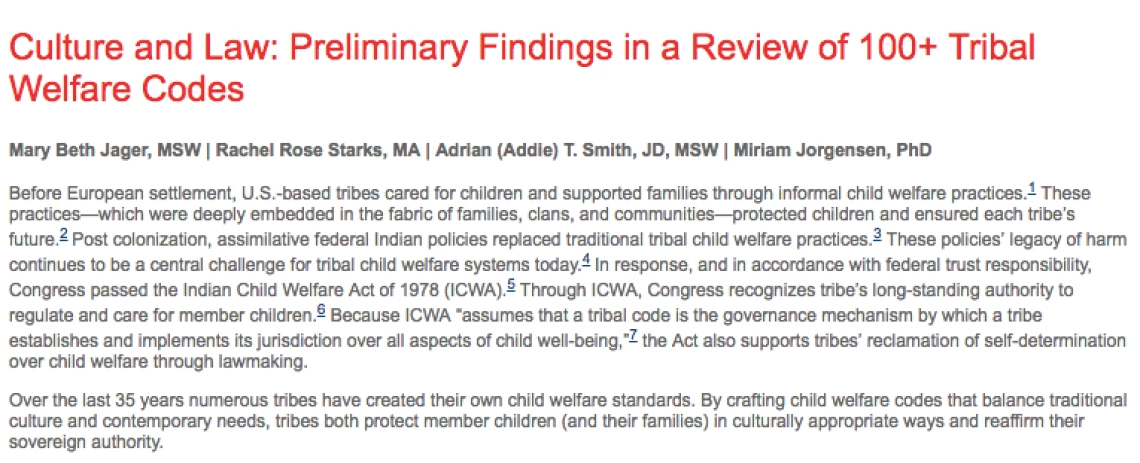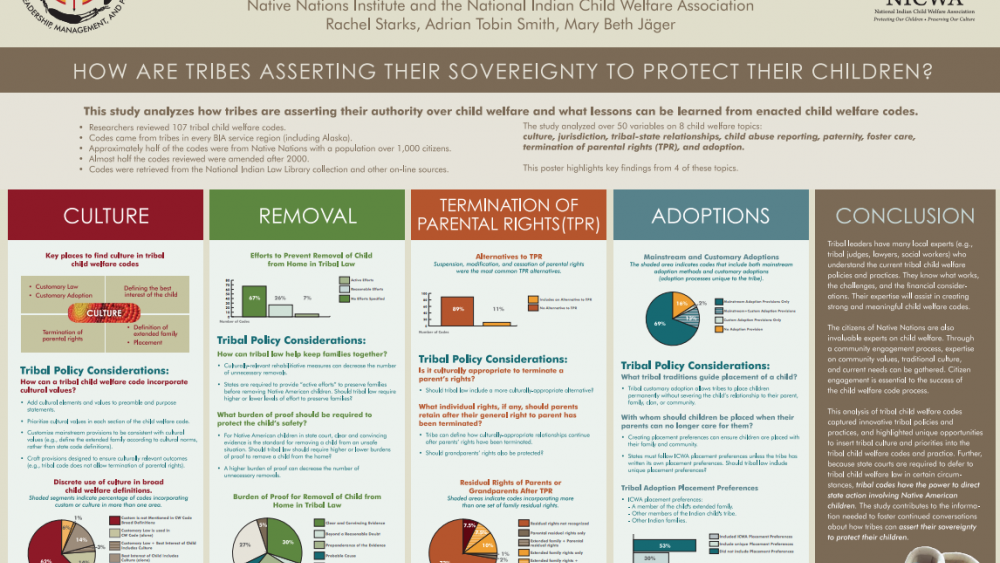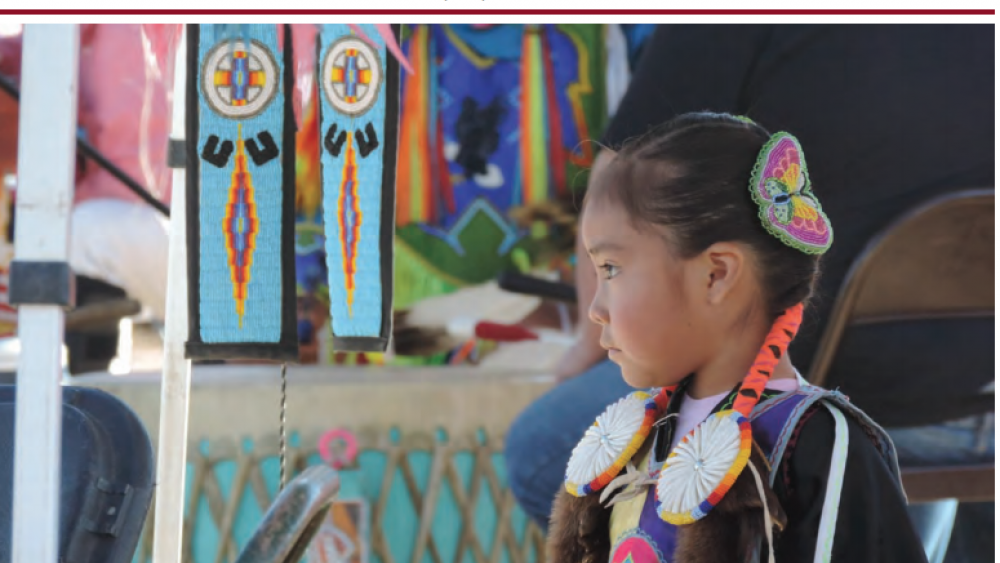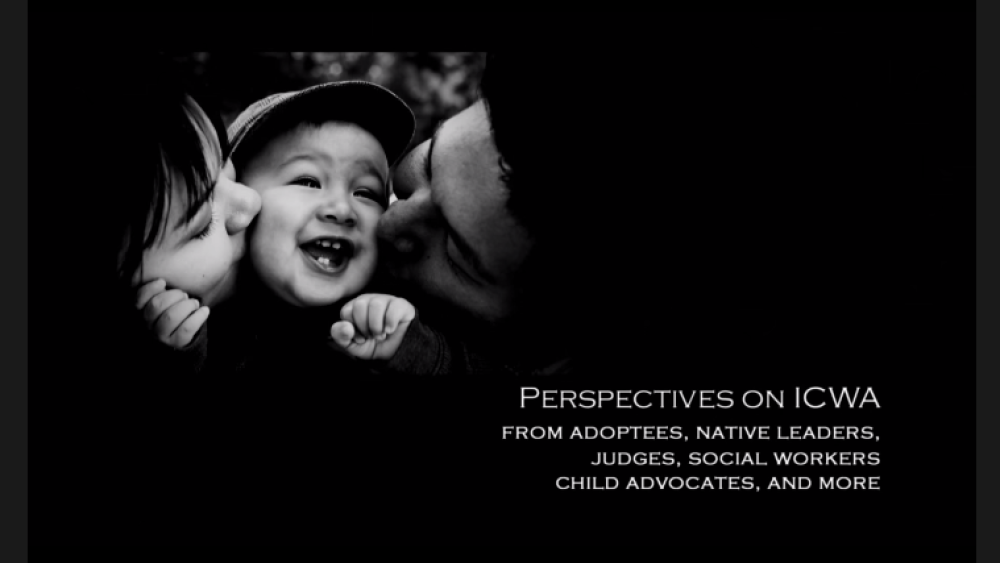Over the last 35 years numerous tribes have created their own child welfare standards. By crafting child welfare codes that balance traditional culture and contemporary needs, tribes both protect member children (and their families) in culturally appropriate ways and reaffirm their sovereign authority.
Additional Information
Jager, Mary Beth, Rachel Rose Starks, Adrian T. Smith, and Miriam Jorgensen. 2015. "Culture and Law: Preliminary Findings in a Review of 100+ Tribal Welfare Codes." The Judges' Pages Newsletter, no. Summer 2015.




